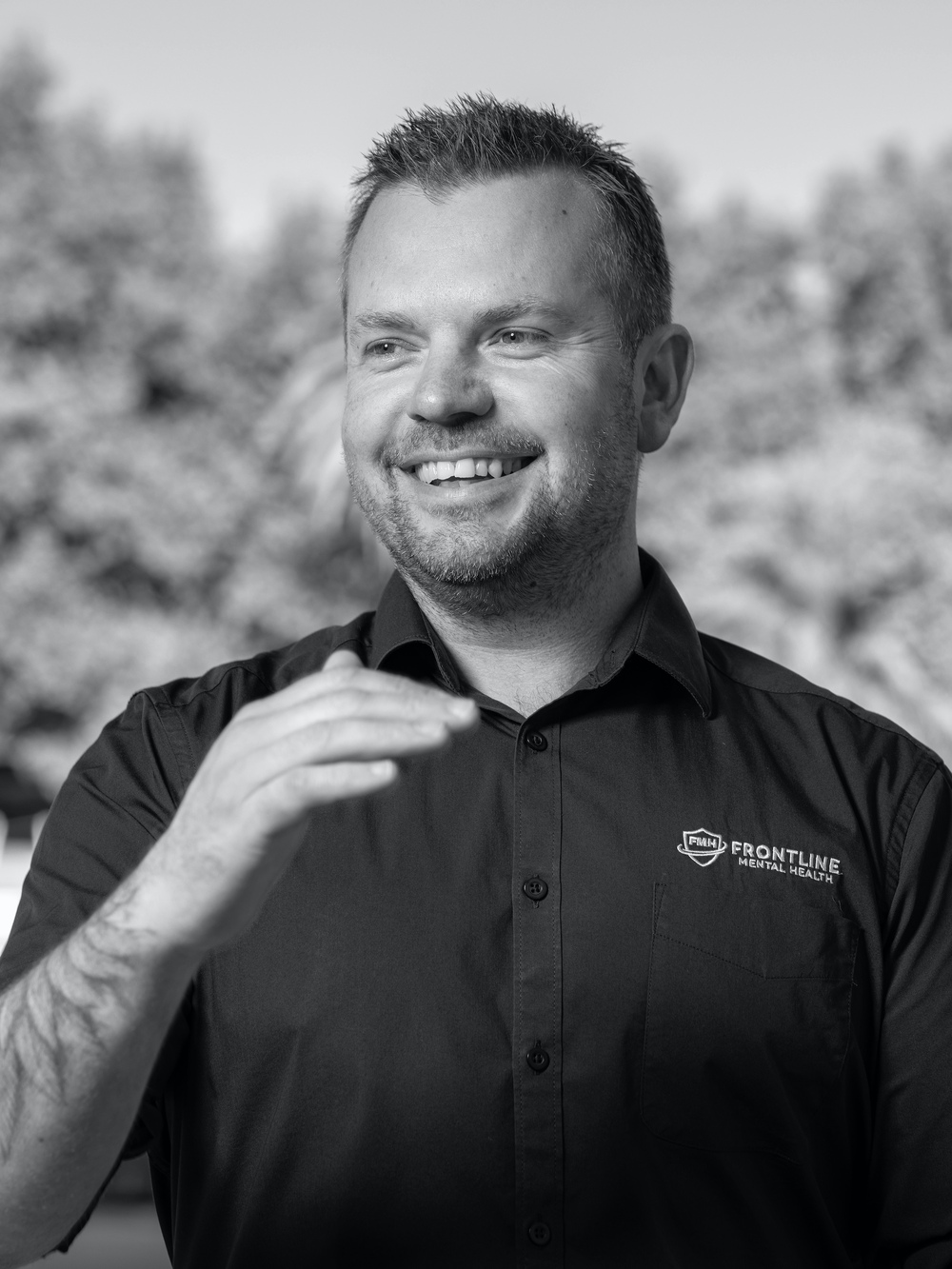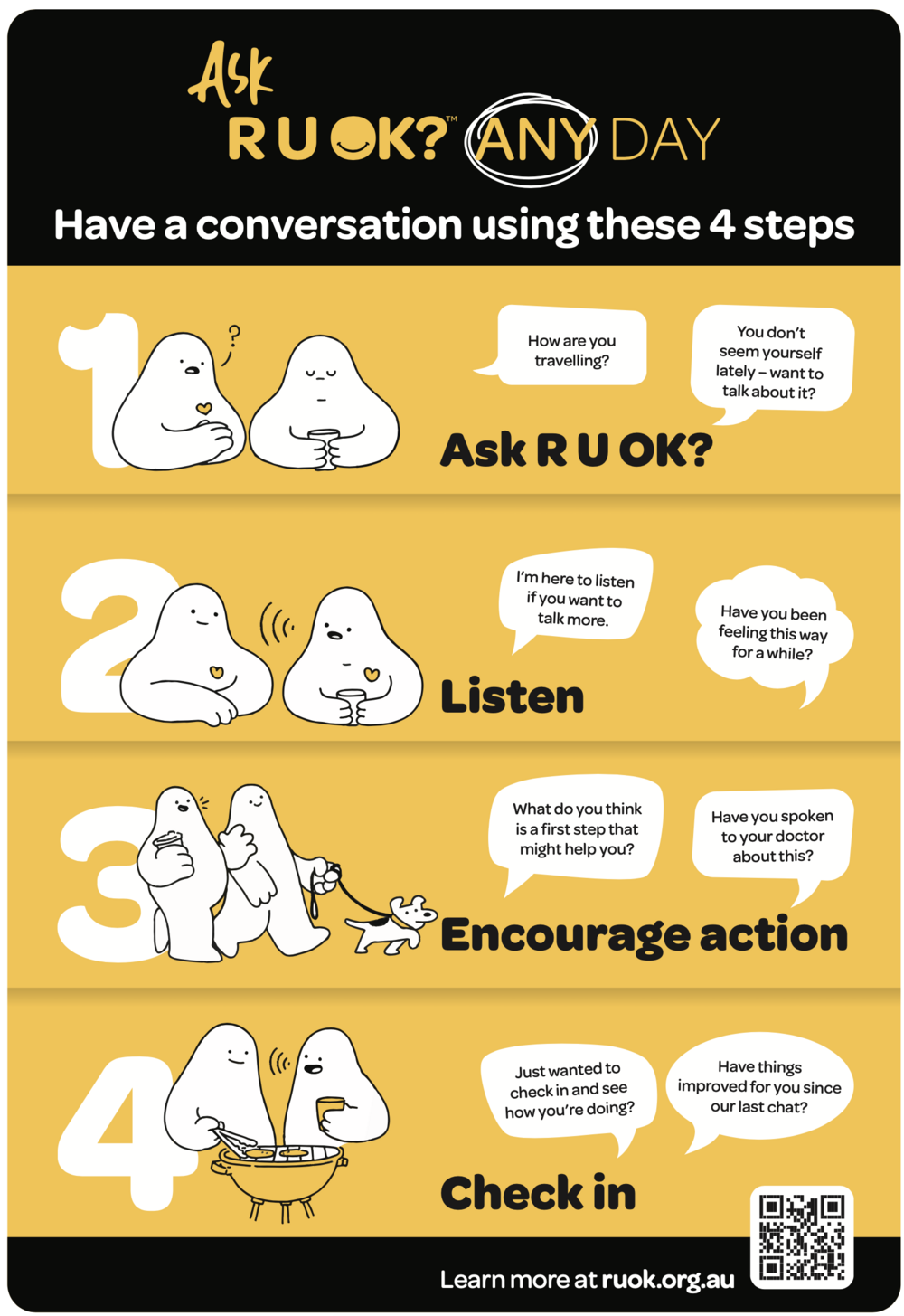Asking R U OK?: The conversation that could save a life
Staff Reporters
15 September 2024, 12:30 AM

Words: Laura Dare
As R U OK? One local resident is on a mission to empower local communities to support each other through life's ups and downs. Matt Newlands, an R U OK? Community Ambassador from Aldinga Beach, knows firsthand the power of a simple conversation in turning someone's life around.
"It was really because of my community, a couple of close friends and supportive family that got me through a really challenging time," Matt says, reflecting on his mental health struggles. He left the police force in 2015 after a 10-year career, suffering PTSD and depression.
"I got out of the force in quite dramatic circumstances due to poor mental health at the time and I spent the first couple of years just trying to get myself well again."
"There was a lot of stigma around mental health in the community, and certainly in the policing environment. I felt a cultural change was required."
Now, as a Lived Experience Educator and counsellor for Frontline Mental Health, Matt is dedicated to breaking down those barriers and fostering a culture of openness and support, particularly for first responders.

Matt Newlands, R U OK? Community Ambassador. Photo supplied.
The power of connection: why every conversation matters
Matt emphasises the profound impact that simple conversations can have on mental health and suicide prevention.
"We're a pack animal, you know, we need to belong somewhere," he explains. "We know that the health impacts of long-term loneliness are significant. We know that people who feel isolated or disconnected from community, it's really harmful to both their physical and mental health."
This sense of connection is particularly crucial in preventing suicide. As Matt puts it, "Having a close, connected community is the first step to suicide prevention." He shares from personal experience: "The power of those conversations... it kept me alive. It's keeping other people alive. It can't be understated."
Importantly, you don't need to be a mental health professional to make a difference. The R U OK? four-step process provides a framework for anyone to have meaningful conversations:
- Ask R U OK? - Choose a private moment and ask directly if they're okay.
- Listen - "Listen with the intention to understand the person's challenge or concern, as opposed to listening to respond, which is often what we do as humans," Matt says.
- Encourage action - This can mean supporting your friend to seek professional help, but that’s not the only option. "Encouraging action can be about working out the things that you know best serve your wellbeing," Matt says. It could be as simple as returning to self-care strategies that have worked, like maintaining routine, social connections, diet, exercise and sleep.
- Check in - "That might be the next day, it could be the following week," Matt says. "It's just making sure that the person has options and a safe landing space where they can talk about them – remember this is a process, not a once-off."
Matt stresses that often, just being there to listen can make a world of difference. "People tell us a lot what a huge impact it has when they have somewhere that they can bring some of their concerns and challenges – just say it out loud and be heard and valued."
Remember, asking R U OK? might seem like a small thing, but as Matt reminds us, it can achieve massive results – like saving a life.
The unique challenges of first responders
First responders include police, fire and ambulance as well as less well-known roles such as surf lifesavers and National Parks and Wildlife staff, “who were absolutely on the front line during the KI bushfires,” Matt says.
The mental health challenges faced by all these groups can be immense.
"Research suggests that an average human will experience one to maybe a handful of quite traumatic experiences throughout their lifetime," Matt says.
"But over 20 years, a police officer will experience upwards of 800 traumatic experiences.”
This stark reality underscores the need for specialised mental health support.
"You can't really address that ongoing stress and trauma with a standardised employee assistance program," Matt says.
"There needs to be a significant overhaul in how first responder organisations support and care for someone who's going through a difficult time."
To address these unique challenges, R U OK? has launched the Are They Triple OK? campaign, focusing specifically on first responders. Matt, who hosts a podcast of the same name, says, “it’s about getting first responders who are confident to speak about some of their challenges, but more importantly, the things that worked for them.”
It's one of several specialised R U OK? campaigns that have tailored resources on the website, plus podcasts: There’s We Need To Talk for the LGBTIQA+ community, and MobWay for First Nations people.
Regional areas often have limited access to specialised mental health services, making community support even more crucial.
"There's still significant challenges and barriers for the rural community in accessing professional support," Matt says – and telehealth isn’t necessarily as effective as face-to-face support.
Isolation is another significant factor in regional SA – especially for some farming families. Matt says the Saturday footy game might be the only time of the week for that deeper connection with the community.
But he says that, once they’re given the resources and information on suicide prevention, these communities are excellent at recognising the problem, rallying around and developing some community initiatives around solving it.
R U OK? Day
This year's R U OK? Day was on 12 September.
But Matt stresses that while R U OK? day is an important reminder of the campaign, “every day is a day to have these conversations, talk about the challenges and celebrate the successes."
For more information about the R U OK? campaign, visit ruok.org.au
For 24/7 suicide prevention and crisis support, contact Lifeline at lifeline.org.au or 13 11 14.
